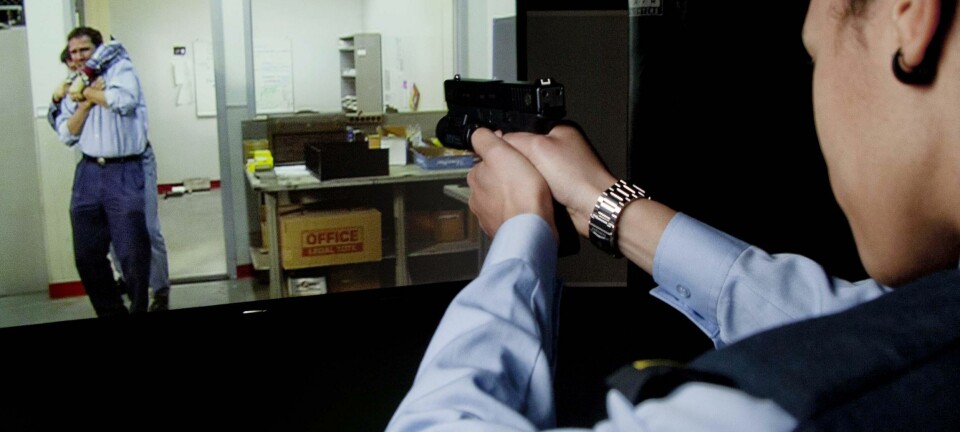This article was produced and financed by BI Norwegian Business School

When policemen blow the whistle on their own colleagues
Is it true that policemen avoid reporting on colleagues who break the law? Perhaps not. A new study shows that policemen do blow the whistle and that the crimes are not treated with no leniency.
Denne artikkelen er over ti år gammel og kan inneholde utdatert informasjon.
It is often claimed that police employees do not blow their whistle or report on colleagues who commit violations during their official duties.
This perception is so widespread that it is commonly referred to as the "blue code of silence ".
Duties assigned to the police give them a wide range of instruments of power. Without adequate control of how these powers are used, the right to exercise them can represent a threat to the rule of law and democracy.
Internal whistle-blowing in the police
The Norwegian authorities have created a special unit for police affairs, which primary task is to investigate cases where police and prosecuting authorities have been reported for committing criminal acts during their official duties.

The unit decides whether or not to prosecute, and to bring the cases before the courts.
Policeman and researcher Stefan Holgersson at the Linköping University and Professor Petter Gottschalk at the BI Norwegian Business School conducted a study of all verdicts reached in prosecution cases filed by the Norwegian Bureau for the Investigation of Police Affairs.
The researchers were particularly interested in the proportion of cases that came as a result of internal whistle-blowing.
The study were presented in a paper published in the international scientific journal Police Practice and Research, and has been selected for the journal's Best Paper Award for 2011.
Not treated leniently
Between 2005 and 2010 the Norwegian Bureau prosecuted a total of 62 police employees.
Twenty of the defendants were acquitted, while the remaining 42 policemen were sentenced for violating police duties.
Twenty-seven of the 62 cases (44 percent) originated from internal whistle-blowing inside the police force. The remaining 35 cases were initiated by complaints from other members of the public.
"The study shows that Norwegian police employees do in fact blow the whistle on possible violations committed by colleagues. Whistle-blowing is also followed by investigations that may result in prosecution and sentencing," says Gottschalk.
The cases that were based on internal whistle-blowing resulted in prison sentences averaging 150 days, while the externally reported cases resulted in prison sentences averaging 55 days.
While the differences are not statistically significant, they do indicate that cases arising from internal whistle-blowing are treated no less leniently than cases reported by external parties.
The longest sentence imposed originated from internal whistle-blowing.
Idealists blow the whistle
The researchers conducted a content analysis of the verdicts in the 62 cases.
According to Gottschalk, there is a tendency for young, relatively newly qualified police employees to report possible violations committed by colleagues.
"It seems as if it is the idealists that blow the whistle," says the professor.
































